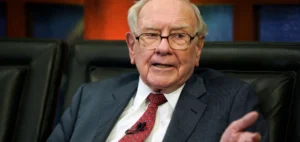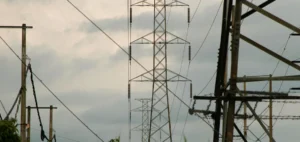Declining production, rising energy prices, competition: there is no shortage of challenges for the Europeansteel industry, which must both reduce its carbon footprint and meet the steel needs created by the energy transition, for example for wind turbines.
The steel industry accounts for some 308,000 direct jobs in the EU-27, where steel production fell by 10.5% in 2022 to 136 million tonnes, out of a global total of 1.88 billion tonnes (-4.2% in one year), according to the global steel association Worldsteel. France ranks 16th with 12.1 million tons produced, far behind China and its one billion tons.
Widely used for building, infrastructure, automotive and household appliances, steel is also essential for the construction of wind turbines, solar farms and future hydrogen and CO2 transport networks. “Ten years ago, Europe exported a little more than it imported,” recalls Marcel Genet, a steel expert and founder of the company Laplace Conseil. But over the years the Old Continent has proved “less and less competitive compared to new countries, starting with China, which has led to a number of plant closures in Belgium, Germany, Spain, England” or France, he summarizes to AFP.
It was, in an emblematic way, the final shutdown of theArcelorMittal blast furnaces in Florange, whose 10th anniversary will be marked on April 24.
Today, the situation is no rosier: after the disruptions generated by Covid, the European steel industry had to endure in 2022 “economic crises” and an explosion “of energy costs and even the shutdown of some plants, while 2023 does not augur any improvement,” writes energy consultant Sylvie Cornot-Gandolphe in a report for the French Institute of International Relations (Ifri) published in January.
“we can’t do without steel”
All these factors – not forgetting the fact that steel production is a major emitter of greenhouse gases – are pushing “the EU and steelmakers to speed up the energy transition”, she says, insisting that this industry “is the key sector for decarbonizing the European economy” as a whole.
The main climate challenge is to stop using fossil fuels to smelt iron ore. ArcelorMittal, the world’s second largest steel manufacturer, is aiming to produce 4 million tons of emission-free steel by 2026, using hydrogen instead of coal, and electric furnaces. “Hydrogen is very good, but if we don’t have enough decarbonized and clean electricity” from wind, solar or nuclear power, “we won’t be able to make cheap hydrogen”, says Marcel Genet.
The Ifri report agrees: replacing blast furnaces “requires large quantities of clean electricity and hydrogen, and this as early as this decade, while the electricity mixes of European countries are not completely decarbonized and clean hydrogen is a nascent market.
The European steel industry alone “will need at least 2 million tons of hydrogen in the next few years for the transition,” said Axel Eggert, director general of Eurofer, the European steel federation, in March.
While the EU has a target of producing 10 million tons of renewable hydrogen per year on its soil and importing the same amount by 2030. Eggert also says that “more than 74 million tons of additional steel production will be needed just to meet the EU’s renewable energy targets.” “Solar, wind, nuclear… all the renewable energy projects that are being considered and are starting to be implemented are consuming more and more steel. Wind turbines, for example, are steel guzzlers. There is absolutely no sign that we could do without steel, and there is absolutely no substitute product”, underlines Marcel Genet






















